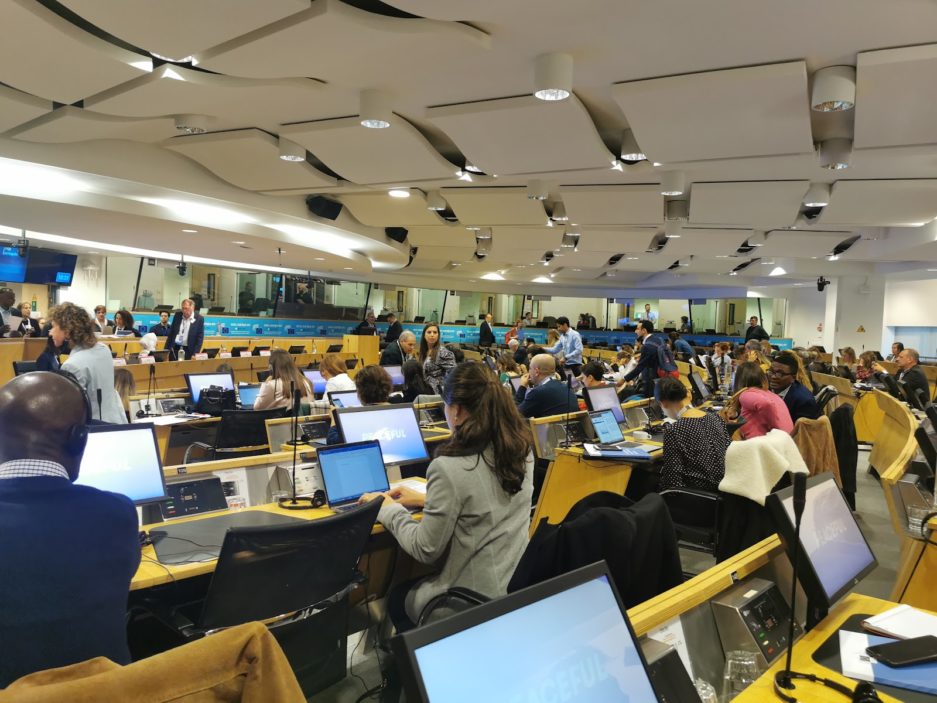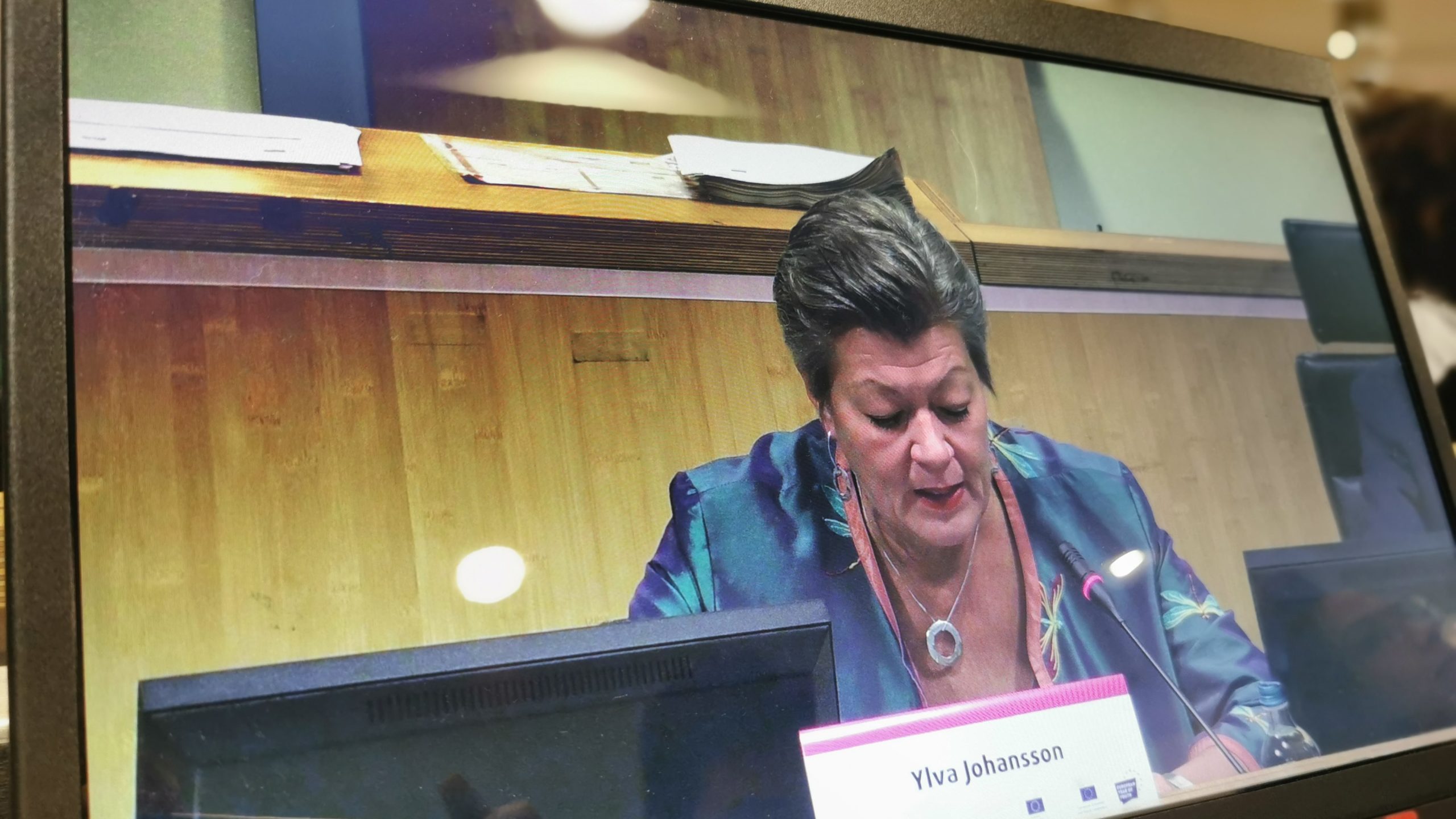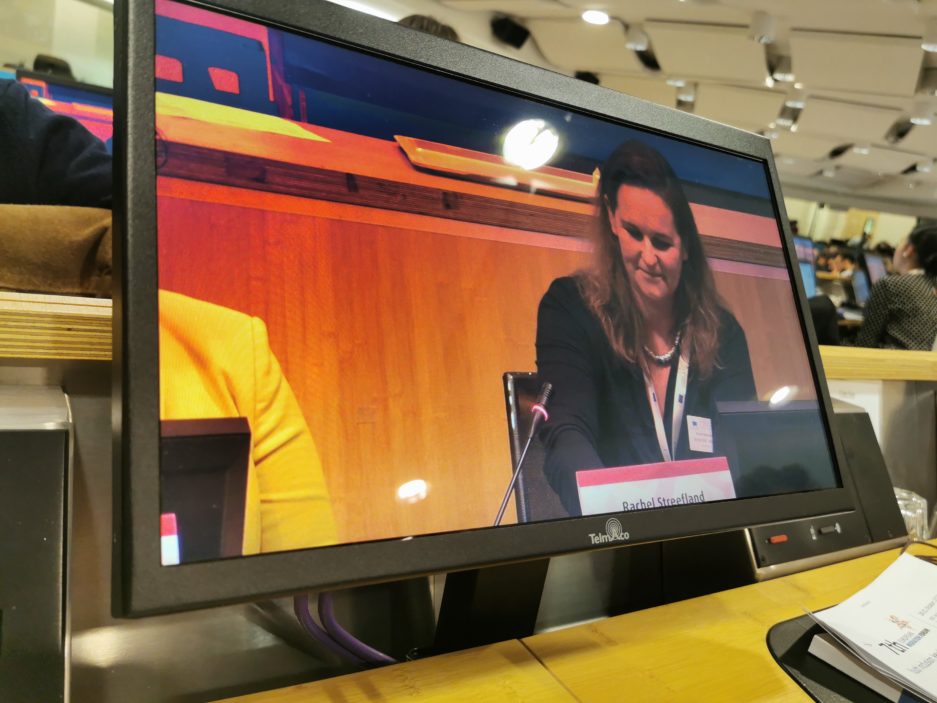
Youngsters demand a more inclusive and citizen-driven Europe
EPIC at the European Migration Forum
The 7th edition of the European Migration Forum (EMF) was held in Brussels on the 20th and 21st of October, 2022 by the European Commission (EC) and the European Economic and Social Committee (EESC). Every year since its creation, this event brings together representatives of civil society and policy makers on issues related to migration, asylum and integration of migrants with the aim of strengthening coordination and cooperation between key actors involved in the multi-level European governance of migration.
In honour of the European Year of Youth, this year’s forum was entitled: “Youth inclusion: key to successful migrant integration“. Particular emphasis was placed on the role of young people in the integration of newcomers to Europe, as well as on specific challenges and measures concerning the integration of young migrants and refugees, such as access to education and training, professional mobility and the promotion of participation and engagement of young migrants.
Learning from previous crises to develop a better reception and integration system: a real possibility or an ad hoc political decision?

The Commissioner for Migration and Home Affairs (DG HOME), Ms. Ylva Johansoon, addressed the plenary of the EMF, highlighting the need to learn from our successes in welcoming refugees from Ukraine. Ms Johansoon welcomed the united multi-stakeholders’ solidarity achivedments, such as the exceptional activation of the Temporary Protection Directive, the launch of emergency actions such as the “Safe Homes Initiative”, and the joint efforts of civil society and public authorities to ensure access to education for 670,000 Ukrainian children and to the labour market for 400,000 adults. “We have made history together”, she said, and “we need to build on this experience to reflect on how we can create an even better system in the future for all refugees, where everyone can feel welcome to be part of the European society”.
This reflection was welcomed by participants, acknowledging how the rapid efforts deployed amidst the war in Ukraine helped people reach safety without causing the asylum system to collapse. However, there were some reservations that such a response would not be applied to other refugee crises. Many participants took the floor and stated that such discrepancies in welcoming some and not the others was not only due to better preparation and building on what works, but to a political willingness that does not always emerge if the refugees were to come from Middle East countries, in light of recent events in Afghanistan and Syria.
Integration starts by ensuring access to the education system for all
Razan Ismal, founder and Director of the NGO Kudwa in Spain, reminded panellists that migrants and refugees often start their adult life later than their peers EU born-citizens, because their journey to integration can entail years living in a reception centre, long waiting periods to obtain certain permits, or the need to re-skills themselves to meet the national legislation and market’s needs. Youth integration strategies need to take into account this and support them during the transition to adulthood.
The workshop “Specific challenges and measures regarding integration of young refugees” revealed that many challenges still persist for achieving an inclusive education system. Overcrowded classes, segregated schools, where the staff have not received the adequate training to address a diverse classroom and better customise the learning process, or lack of existing skills, are frequent pitfalls.
Complementary education, such as sports and cultural activities that also engage parents, was widely discussed as a good practice tested in different cities. Besides the “leisure” part of it, these initiatives create safe spaces for different communities, encouraging stakeholders and service providers to collaborate for a more comprehensive support system. Psychological support, child-friendly communication strategies, empowering techniques that value diversity and recognition of different skills, and diplomas require that schools coordinate with several other actors through public-private partnerships, were all suggested as practices that can remove such barriers.
Fridoon Joinda, a young filmmaker and member of Migratory Birds newspaper, originally from Kabul, emphasised the importance of the European Union’s democratic, free-speech, and human rights systems, which are uncommon in much of the world, and we should not take these for granted. He highlighted once again the importance of academic education for displaced people. Unfortunately, academic education for refugees is extremely rare in Greece, where he stayed in a refugee camp upon his arrival from Afghanistan. Thanks to the American College of Greece, he could access university, but this type of opportunity is still too rare, and inclusive practices are needed so that access to higher education does not remain the privilege of a minority.
Having a voice. Youth participation and public narratives on migration
Many speakers such as Rachel Streefland, Deputy Mayor of Utrecht, mentioned the need to change the narrative by highlighting the opportunities that migrants bring to our society, such as the fact that migrants come with many talents and skills we can benefit from. While participants agreed with this, some noted that we need to be cautious and precise about how we communicate: integration is not only a matter of “usefulness” but of human rights protection.
Amara Makhoul, Editor in chief of InfoMigrants, pointed out that the responsibility of journalists is not to give positive or negative stories, but to be factual and precise. The responsibility of the journalist is to raise awareness with stories and facts, educate the reader and whenever possible, do it from an early age. Two aspects of their work could potentially influence public opinion on migrants: 1) a regular and specialised coverage; 2) giving a voice to migrants.
In his presentation of the Eurobarometer´s results of 2022, Luca Barani, policy officer at DG HOME, stated that only 1 in 4 respondents declared to be well informed about inmigration and integration related matters, while most Europeans (59% of respondents) obtain information on such matters from traditional media.
Young migrant representatives at the plenary expressed how they felt misinformed and far away from decision making processes at all levels. They questioned whether there are real mechanisms and a willingness to engage them in a participatory manner, whether in ad hoc consultation, or even to empower them to act on their own behalf and become leaders. The representatives also asked if their concerns will be forgotten by the audience and host institutions a few weeks after the EMF is over, highlighting the need for sustainable engagements. Public institutions now needs to ensure that young Europeans regardless of their origin are able to execute their rights and work for their future.
